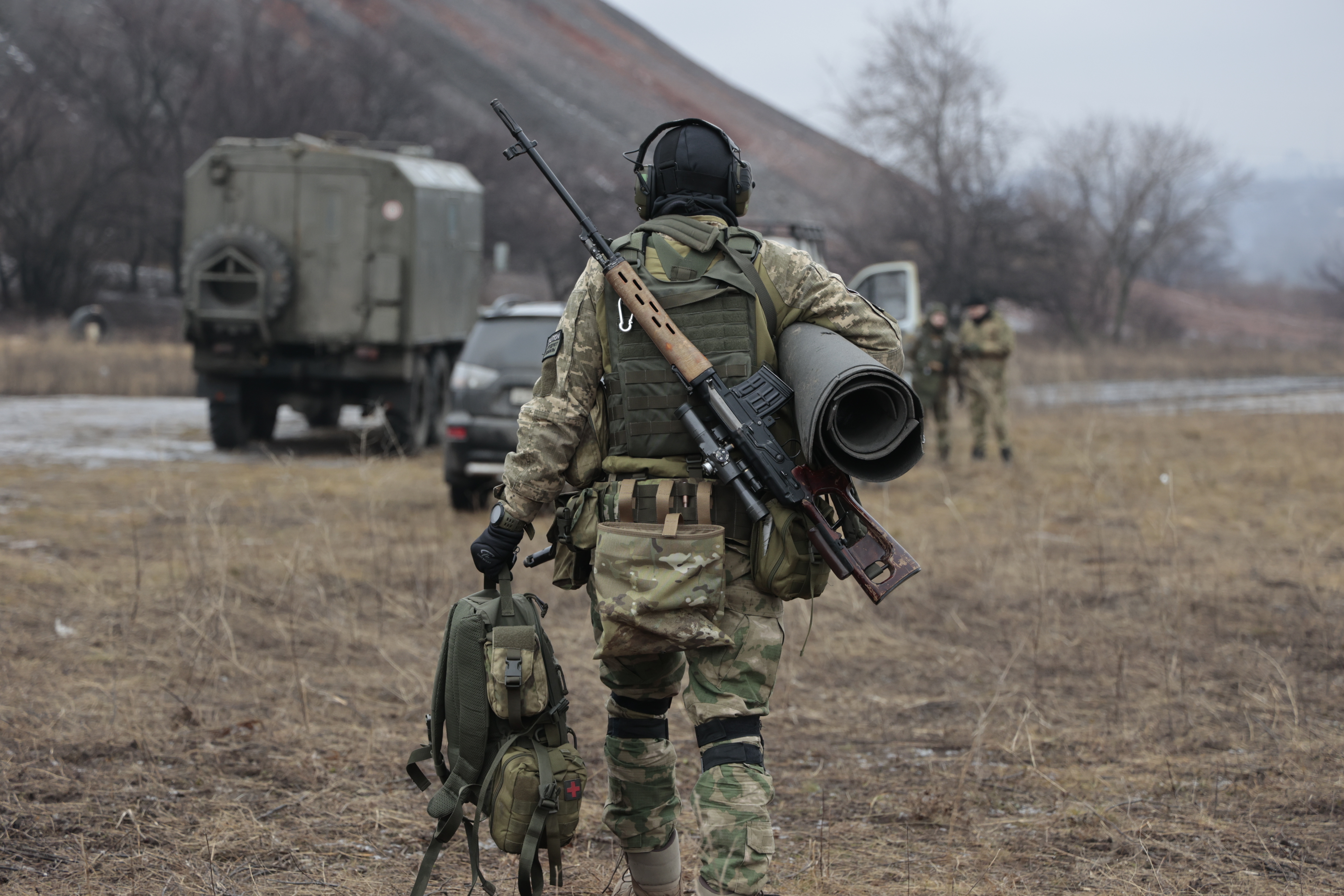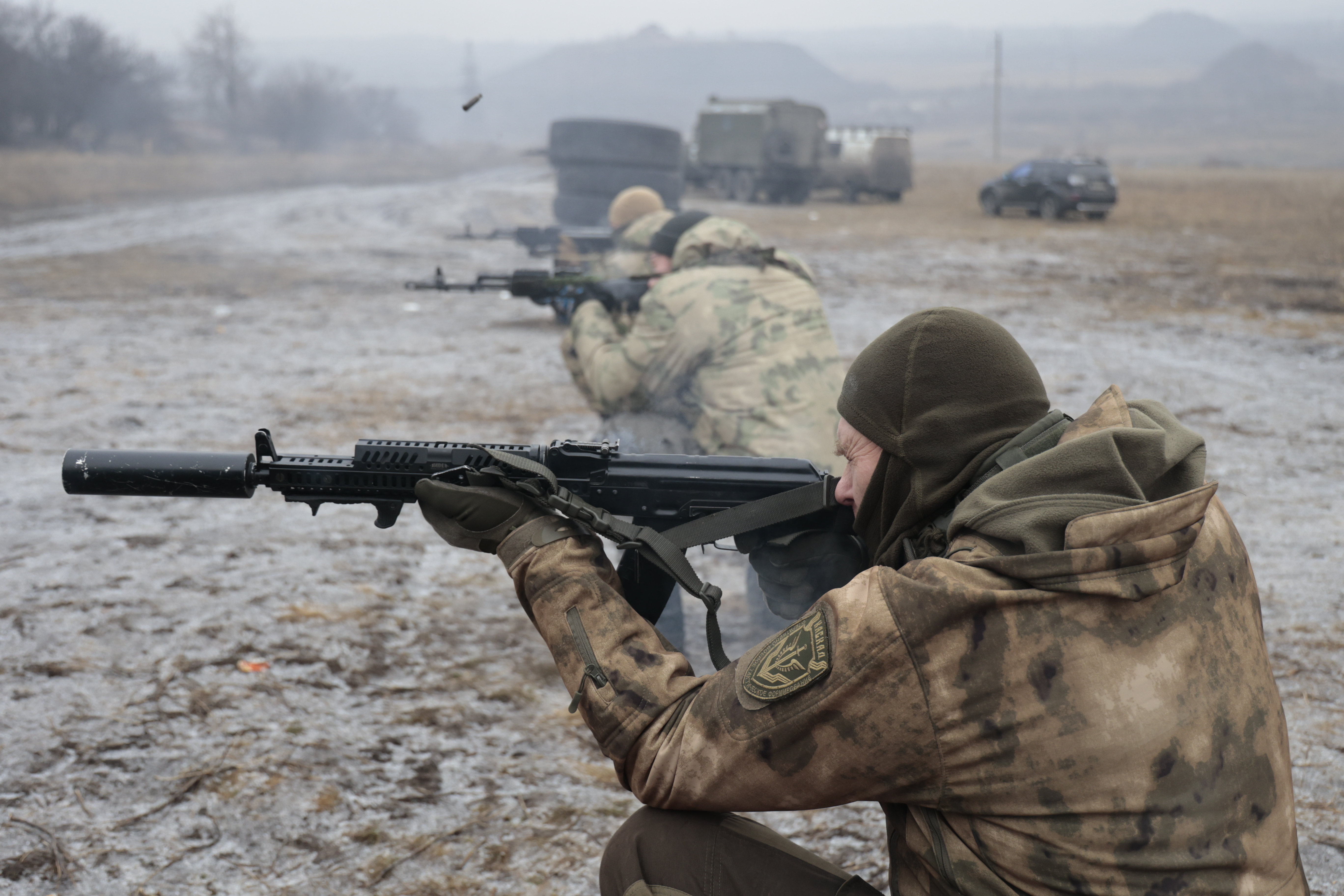
Two former fighters from the Russian private military company Wagner spoke to CNN about their horrific experiences on the battlefield in eastern Ukraine, saying that anyone who loses courage is executed by their own commanders.
Both fighter jets were captured by Ukrainian forces late last year. CNN does not disclose their identities for their safety. Both are married, have children and are enrolled in prison. One was serving a 20-year sentence for manslaughter.
For security reasons, the Ukrainians remained in the room where the interview took place. CNN told the fighters they could finish the interview whenever they wanted. But they talked at length for over an hour.
Both fighters spoke of horrendous losses in the attacks of the “first wave”, i.e. uncontrolled and careless attacks, reminiscent of the First World War.
“We were 90 people. In that first attack, 60 people were killed by mortar fire. There were a handful of wounded,” one of them said, recalling his first attack near Belogorovka. “If one team fails, another is sent immediately. If the second one fails, send the next one.
Another fighter took part in a five-day offensive through the forest near the city of Lisitsynsk on the Luhansk-Donetsk border in eastern Ukraine.
“The first steps in the forest were hard because of the mines scattered on the ground. Of the 10 children, 7 died instantly,” he said.
“You can’t help the wounded. The Ukrainians fired heavily at us, so even if their wounds were minor, we had to move on, otherwise they would knock us out with shrapnel. I went through this for five days, people were dying right next to me, praying to God, asking for water. You think that you can give up your weapons and that everything will stop there. And then after 10 minutes the fight starts again, and (Ukrainians) keep chasing you. There are no emotions here. It’s just one wave after another.”

“Four hundred (Wagner fighters) were brought there, and then more and more, without a break.”
The prisoner said that he had developed an instinct for self-preservation, while others “froze”. “Some stop in the forest and hand over their weapons. But if you drop your weapon, you will come under sniper fire and die.”
He added that the evacuation of the wounded was not carried out. “If you are wounded, you save yourself, as best you can, somewhere on neutral territory where there is no fire, and if there is no one around, give yourself first aid,” he said.
The victims were piling up in the dozens, the two men said. “When the wounded arrive, you are ordered to load them, and you don’t think about who died and who was injured,” one of the fighters said.
For many weeks on the front lines, two men said they had only one instinct. “About survival. I just had a desire to survive, at any cost,” said a prisoner who participated in the attack in the forest.
They were stunned by the losses and killings of Ukrainian soldiers they faced. “You expect to feel something (after killing someone), but no, you just keep going.”
According to the men, the option of crossing minefields towards Ukrainian artillery was just as deadly.
“We couldn’t retreat without an order, because if we didn’t follow the order, we would be killed,” said one of the prisoners.
“The man froze, he was very scared, it was his first attack. We were ordered to run ahead. However, the man hid under a tree and refused to obey. This was reported to management, and that’s it. He was taken 50 meters from the base, he dug his own grave, and then they shot him.”
Another fighter reported a similar situation: “Our commander was told that if someone “freezes”, he must be eliminated. And if we hadn’t been able to eliminate him, they would have destroyed us, because we couldn’t eliminate him.”
The promise of freedom
Two men told how they were recruited by Wagner. In August and September last year, the group’s leader, Yevgeny Prigozhin, flew by helicopter to the prisons where they were being held and offered them six-month contracts in exchange for pardons.
One of the men still had 10 years in prison after being convicted of manslaughter. “I weighed that six months is better than the 10 or 11 years that I have left to spend in prison … I just wanted to start over,” he said.
At that time, Prigozhin’s recruitment campaign in Russian prisons was in full swing. Western intelligence officials and prison defense groups estimate that between 40,000 and 50,000 people were recruited.
Prigozhin said last Thursday that prisoner recruitment had ended, but did not explain why.
“Only a handful of my squad came for the money, most came because of the long terms,” said one of the fighters. “But there were those who had only 12 days left before the deadline, and they went anyway. They all lined up in the yard, and Prigozhin began to recruit them,” he said. “Prigozin said that he has the freedom from higher authorities to take anyone out of prison, regardless of crimes or prison time. The ideal candidates are murderers and robbers.”
According to one of the prisoners, the selection process was so elementary that the elderly prisoners simply had to show that they could walk a few meters. “They took almost everyone.”
“Some of them were for bondage… crazy, those who, having received a gun in their hands, have no idea what to do with it,” he added.
For prisoners who still had years ahead of them, the offer was tempting. One of them said: “We had to fight for six months in Ukraine for our freedom. Let’s fight the Nazis. At the same time, we were promised a salary, repayment of loans and a clean reputation.”
Russian President Vladimir Putin, after all, has repeatedly put forward groundless “denazification” rhetoric as justification for his invasion of Ukraine.
Shortly after Prigozhin’s visits, hundreds of prisoners were sent by bus and plane to a training center on the outskirts of Rostov in Russia, the two men said.
According to one of the prisoners, there was a strict ban on drugs and alcohol. Some commanders said they fought on the side of Wagner in Africa and Syria.
The training was short and basic, handling weapons for the terrible attacks they were about to make. The men said it was clear that they were being trained for missions they did not agree to participate in.
Now they complain bitterly about the scam that Prigozhin sold them.

“He didn’t say anything about risks,” one of them said. “He talked about the removal of all convictions, that we will serve six months, that all convictions will be dropped, that we will receive an advance payment of 240,000 rubles (about 3,500 euros), and also that we are obliged to protect the rear.”
The two men also feel betrayed by the nature of the conflict. “We thought that we would fight the Poles and various mercenaries. Germans. We thought that there was no one left in the Ukrainian army. We thought they had left the country,” one of them said.
“Thus, it became clear that they were simply lying in order to force us to go to war with the Ukrainians. Nobody believed that the Armed Forces of Ukraine (Ukrainian Armed Forces) would really fight for their country, for their loved ones. We only found out about it after we went into battle.”
According to the prisoners, being captured was almost a relief. One of them said that he and a wounded comrade were the only survivors from his team, caught “between two Ukrainian mortars and a sniper.”
“The command ordered me to stay where I was, which I did while waiting for the evacuation. They sent a team of 10 people, and the sniper destroyed all 10, ”he recalled.
“Then an order came on the radio: “Get out as best you can, you yourself.” OURUkrainian soldiers “came up and fired next to my leg, said ‘hands up’ and that’s it.”
When asked if they would make the same decision again, the prisoners stopped. “I believe that it was the wrong choice… I have never participated in any military operation, especially in battles against the Armed Forces of Ukraine, which refuse to give up their land. We were brought here under false pretenses. So we are at war, but I don’t think that’s a good reason,” one of them said.
Another prisoner agreed. “I don’t think it was worth it. Now I hope I can turn the page.” And he kept saying that he managed to contact his family. “They thought I was dead until I contacted them. They cried and were surprised that I was alive.”
Both men said they wanted to return to Russia. One said: “I don’t care about Russia. I just want to go home.”
Source: CNN
Source: Kathimerini
Anna White is a journalist at 247 News Reel, where she writes on world news and current events. She is known for her insightful analysis and compelling storytelling. Anna’s articles have been widely read and shared, earning her a reputation as a talented and respected journalist. She delivers in-depth and accurate understanding of the world’s most pressing issues.